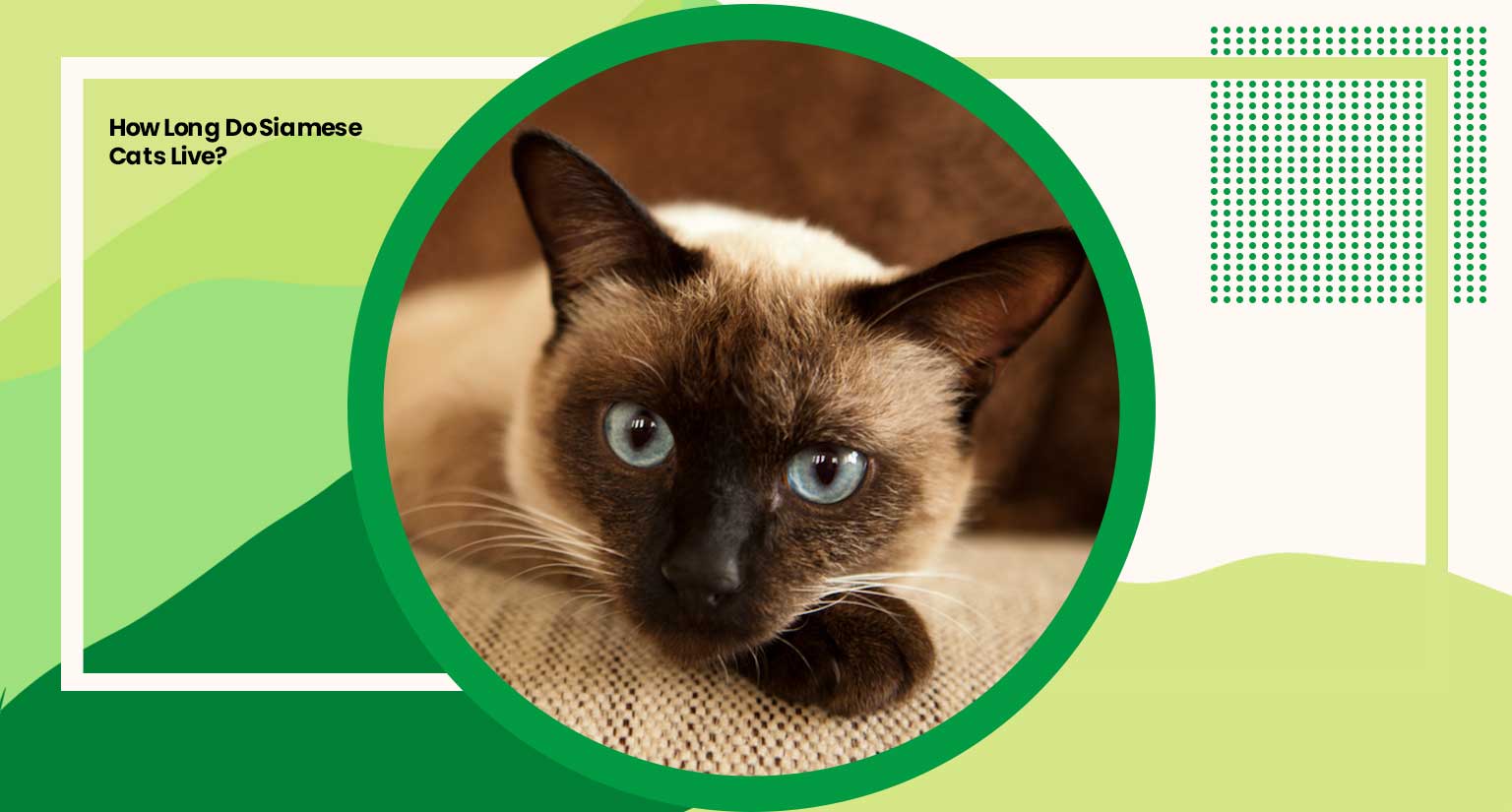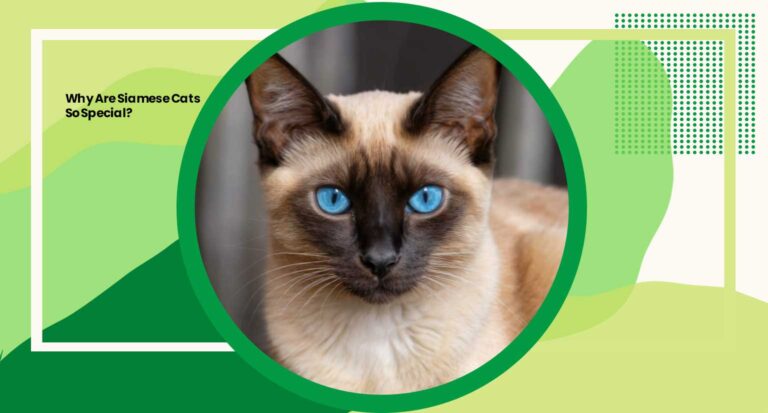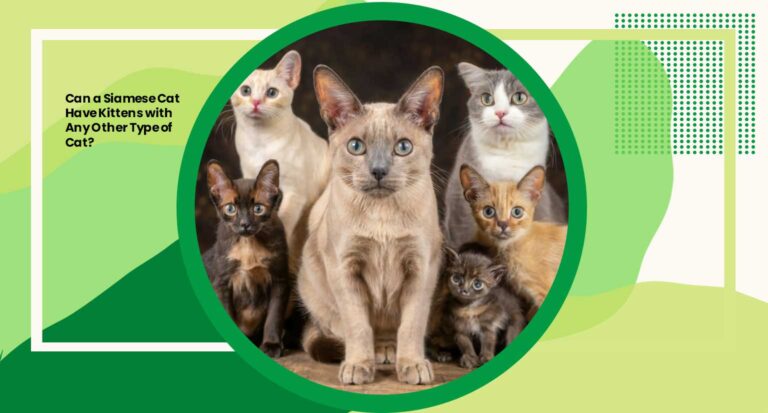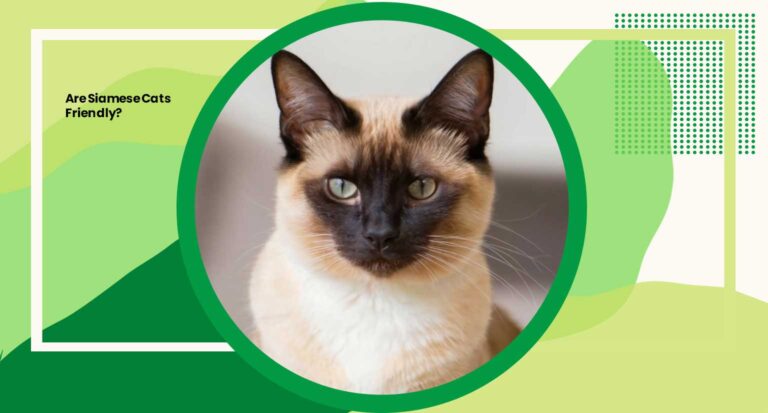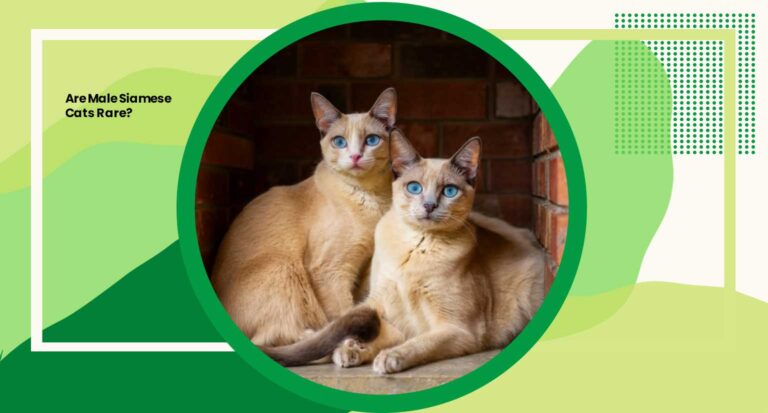How Long Do Siamese Cats Live?
Exploring the world of Siamese cats brings about a common query: How long do Siamese cats live?
This noble and elegant breed has captivated hearts with their striking appearance and charming personalities.
Join me in unraveling the mysteries of Siamese cat lifespan, discovering factors influencing their longevity, and unlocking insights to ensure these beloved companions live their best lives.
How Long Do Indoor Siamese Cats Live?
I’ve been enamored with Siamese cats for years, especially their lifespan and how it’s affected by their living environment.
When it comes to indoor living, these elegant felines truly thrive. From my experiences and research, I’ve learned that indoor Siamese cats typically enjoy a longer lifespan compared to their outdoor counterparts.
Indoor Siamese Cat Longevity
Sheltered Environment
Indoor living ensures a sheltered, safe haven for my Siamese cats. Protection from outdoor hazards like predators and accidents significantly contributes to their extended lifespan.
Healthier Lifestyle
I’ve noticed that the controlled indoor setting offers a healthier lifestyle. It minimizes exposure to diseases, environmental toxins, and extreme weather conditions, allowing them to lead healthier and longer lives.
Enhanced Care
Indoor Siamese cats benefit from enhanced care. Regular vet check-ups, a nutritious diet, and ample opportunities for exercise and mental stimulation play pivotal roles in extending their years.
Stress Reduction
The serene, controlled indoor environment minimizes stressors. I’ve found that a stress-free life positively impacts their well-being, influencing their longevity significantly.
Comfort and Security
The comfort and security of indoor living foster a sense of security for my Siamese companions. This sense of safety contributes to their overall contentment and longer, happier lives.
Through providing a nurturing indoor environment coupled with dedicated care, I’ve witnessed firsthand how indoor Siamese cats often surpass their expected lifespan, becoming cherished companions for a prolonged journey filled with affection and joy.
How Long Do Siamese Cats Live?
As someone deeply enamored with Siamese cats, I’ve delved into understanding their lifespan intricacies.
These feline companions, with their breathtaking looks and intelligence, hold an average lifespan that typically spans between 12 to 15 years.
Yet, I’ve witnessed firsthand how attentive care and a nurturing environment can significantly extend their years, gracing our lives well beyond their expected tenure.
Affecting Siamese Cat Longevity
Genetics
I’ve learned that genetics play an instrumental role in determining how long my Siamese cat will live. Opting for responsible breeders who prioritize health traits ensures a promising foundation for a longer life together.
Diet and Nutrition
The heart of their vitality lies in their diet. Crafting a balanced, tailored nutrition plan based on age and health needs is key.
I’ve observed that a wholesome diet not only bolsters their well-being but also significantly impacts their lifespan.
Veterinary Care
Regular vet check-ups have become a cornerstone of our routine. These visits aren’t just about examinations; they’re preventive measures that catch issues early, potentially adding precious years to our companionship.
Exercise and Mental Stimulation
Our Siamese cats are inquisitive and agile creatures. I’ve discovered that a blend of physical activities and mental challenges through toys and play not only keeps them sprightly but also contributes to a happier, longer life.
Stress Management
Creating a harmonious, stress-free environment is pivotal. From minimizing disruptions to providing safe spaces, I’ve realized that a serene atmosphere significantly impacts their overall well-being and, consequently, their lifespan.
Through dedicated attention to these factors, I’ve been fortunate to witness many Siamese cats, including my own, surpassing the anticipated lifespan, gracing our lives with their presence and affection well into their golden years.
Cat Breeds With The Longest Lives
My fascination with cat breeds and their longevity has led me to uncover more insights into these captivating feline companions.
While every cat’s lifespan is influenced by various factors, including genetics, environment, and care, some breeds have a penchant for living notably longer lives.
Cat Breeds and Their Impressive Longevity
Siamese Cats
Beyond their striking appearance and charming personalities, Siamese cats often surpass the average feline lifespan.
With proper care and an indoor lifestyle, they frequently extend their years beyond the typical 12 to 15-year range.
Their intelligence and affectionate nature seem to contribute to their longevity, making them beloved companions for a prolonged period.
Ragdoll Cats
The gentle, easy-going nature of Ragdoll cats accompanies an impressive lifespan that often extends into their late teens and, in some cases, even reaches their twenties.
Their serene disposition and close bonds with their human companions might play a role in their extended years.
Burmese Cats
Burmese cats, admired for their sleek appearance and playful demeanor, are known for living well into their late teens and occasionally hitting their early twenties.
Their robust health and energetic personalities contribute to their remarkable longevity.
Sphynx Cats
Despite their unique hairless appearance, Sphynx cats have a lifespan that rivals many other breeds, ranging from 12 to 15 years on average.
Their distinctive care needs notwithstanding, their warm and affectionate nature often leads to a longer life when provided with proper attention.
Russian Blue Cats
Russian Blues, with their mesmerizing green eyes and calm demeanor, tend to live notably longer lives, frequently reaching their late teens.
Their adaptable nature and strong bond with their human families might contribute to their extended years.
These cat breeds, each with its unique qualities and characteristics, often exceed typical feline lifespans when provided with attentive care, proper nutrition, regular veterinary check-ups, and a nurturing environment.
Their ability to become cherished companions for an extended period underscores the joys of feline companionship.
Can a Cat Live 30 Years?
Embarking on the journey of feline companionship, I’ve often found myself wondering about the upper limits of a cat’s lifespan.
The idea of a cat living for 30 years might seem extraordinary, and indeed, it is quite rare. However, through my exploration into the world of cats, I’ve come across instances that suggest it’s not entirely impossible.
Influencing a Cat’s Longevity
Breed and Genetics
Certain breeds are more predisposed to longer lifespans. While it’s uncommon for most cats to reach the three-decade mark, some breeds, like the Siamese and Burmese, have been documented to live into their early twenties.
Genetics play a significant role in determining a cat’s potential for a longer life.
Nutrition and Care
Proper nutrition and attentive care are paramount. Cats fed a well-balanced, age-appropriate diet and provided with regular veterinary check-ups have a higher likelihood of reaching their senior years.
Preventive care can catch potential health issues early, contributing to an extended lifespan.
Indoor vs. Outdoor Living
Indoor cats generally have a longer lifespan than their outdoor counterparts. The controlled environment minimizes exposure to hazards, diseases, and accidents, promoting a healthier, safer existence.
Medical Advances
Advancements in veterinary medicine and a better understanding of feline health contribute to increased lifespans.
Routine vaccinations, dental care, and early detection and treatment of illnesses all play roles in enhancing a cat’s overall longevity.
While the idea of a cat living for 30 years is extraordinary and rare, it underscores the importance of diligent care, a conducive environment, and advances in veterinary science.
While most cats may not reach such remarkable ages, providing them with the best possible care ensures that they can lead healthy, content lives well into their senior years.
Frequently Asked Questions
1. What’s the average lifespan of a cat?
Most domestic cats have an average lifespan of 12 to 15 years. However, with proper care and attention, many cats live well into their late teens or even early twenties.
2. How can I prolong my cat’s life?
Ensure your cat receives proper veterinary care, including regular check-ups and vaccinations. Provide a balanced diet, plenty of exercise, mental stimulation, and a safe indoor environment to help extend their lifespan.
3. What’s the best diet for my cat?
A high-quality cat food formulated for their life stage (kitten, adult, senior) is ideal. Discuss dietary needs with your veterinarian to address any specific health concerns your cat may have.
4. Should I keep my cat indoors or outdoors?
Indoor cats generally live longer, healthier lives due to reduced exposure to dangers like traffic, predators, diseases, and accidents. However, some cats may benefit from supervised outdoor time.
5. Is it normal for my cat to sleep a lot?
Yes, cats sleep an average of 12-16 hours a day. However, drastic changes in sleep patterns could signal health issues.
6. What vaccines does my cat need?
Core vaccines for cats include rabies, feline viral rhinotracheitis, calicivirus, and panleukopenia. Your veterinarian can recommend additional vaccines based on your cat’s lifestyle and risk factors.
7. How can I introduce a new cat to my household?
Gradual introductions, separate spaces at first, and positive reinforcement are crucial. Give each cat their own resources and slowly allow supervised interactions until they get accustomed to each other.

